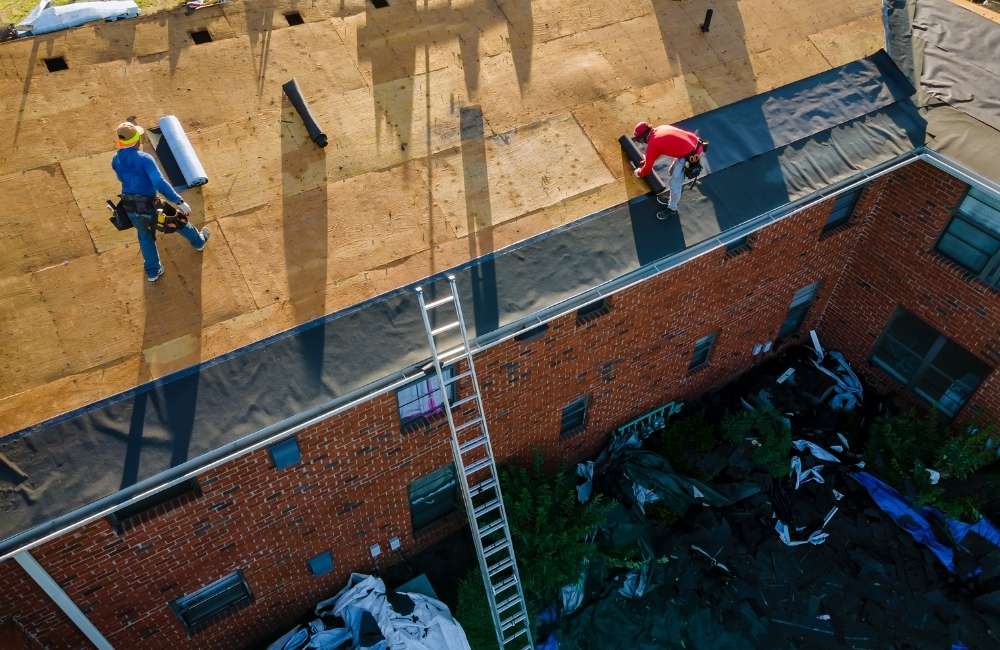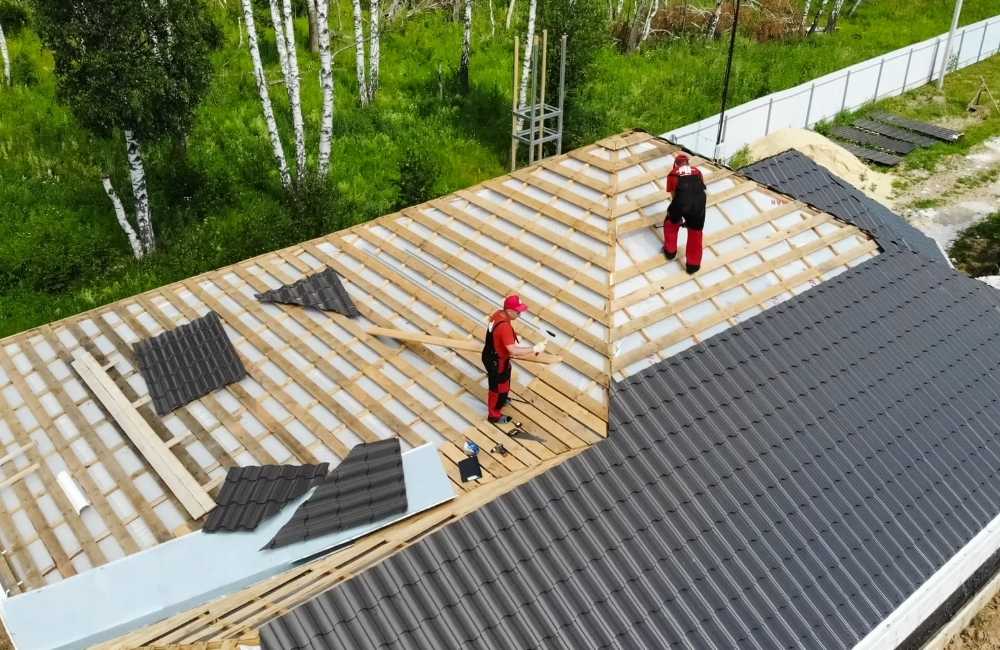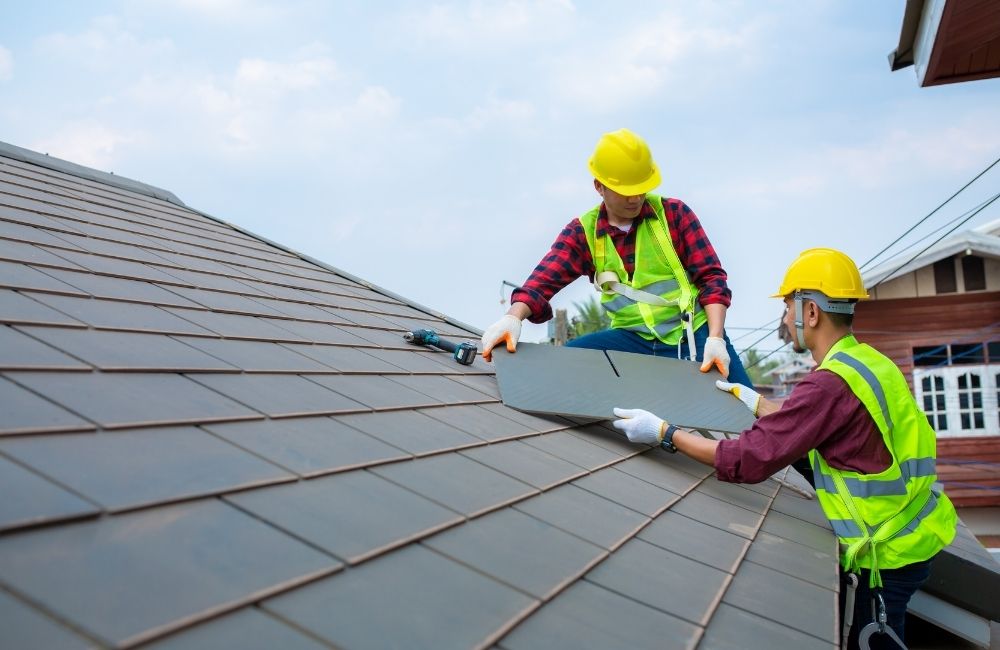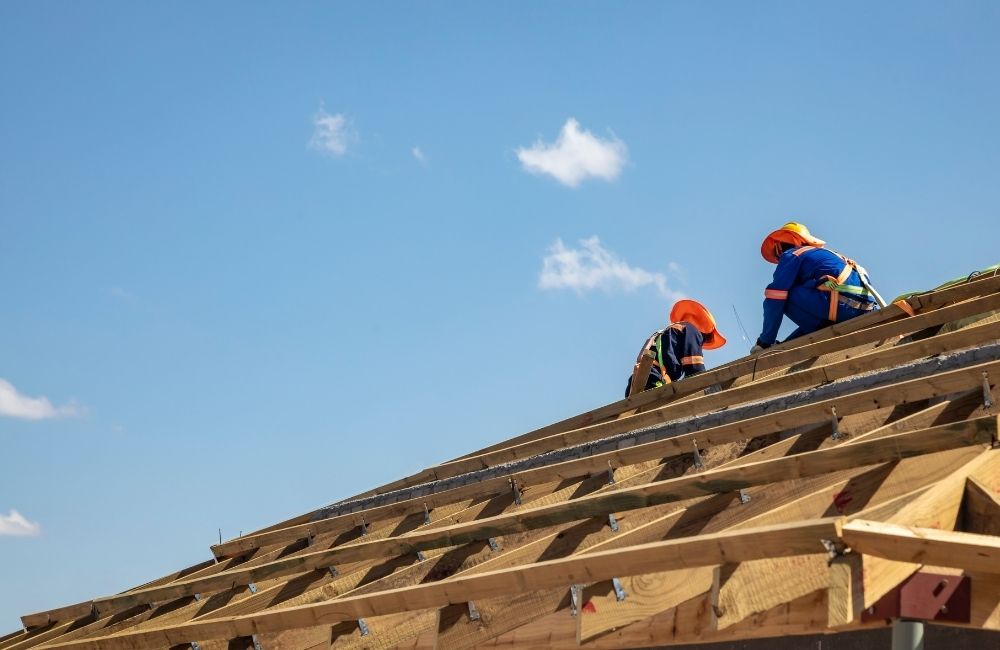- Free Estimates

✔ Confirm proper license and insurance to ensure legal and financial protection.
✔ Check experience to gauge consistency and workmanship quality.
✔ Ask for local references to verify reputation and past performance.
✔ Understand warranty terms to know what coverage applies and for how long.
✔ Request written estimate and contract to outline clear project expectations.
✔ Review project timeline to plan around start and completion dates.
✔ Identify who will be on-site to maintain communication and job oversight.
✔ Discuss how unexpected issues are handled to avoid delays and extra costs.
Choosing the right roofing contractor is one of the most important decisions in any home improvement project. A poorly chosen contractor can lead to delays, hidden costs, and even structural damage. While many companies offer roofing services, not all deliver the same level of professionalism, accountability, or quality.
In fact, contractor-related scams and poor workmanship contribute to major financial losses across the US. As David J. Glawe, President and CEO of NICB, explains, “Contractor fraud costs hardworking Americans billions of dollars every year.”
Here are eight key questions to ask a roofing contractor before signing a contract.

Hiring a roofing contractor without confirming proper licensing and insurance can lead to serious risks. A license is more than a formality—it proves that the roofing company meets local requirements and follows safety and building codes. Insurance, on the other hand, protects homeowners from financial responsibility in case of accidents or property damage during the job.
A valid license is a sign that the contractor is recognized by the state or local authority and understands industry regulations.
Insurance is a critical layer of protection during any roofing job. It shields the homeowner and the workers from costly liabilities and confirms the roofing contractor is a responsible business owner who values safety and risk management.
Asking the right questions helps determine whether the contractor is both qualified and trustworthy.
Choosing a roofing contractor with a solid track record can make a big difference in the quality and reliability of a roofing project. Experience in the roofing industry is more than just a number — it reflects knowledge, stability, and trust.
Not all roofing projects are the same. Roofs vary in structure, material, and repair needs. A contractor with years of hands-on experience has seen it all — and solved it all.
Partnering with a roofing company that has a proven reputation gives homeowners peace of mind. It signals that the contractor is committed to staying in business and serving clients long-term.

Before hiring a roofing contractor, it’s important to ask for local references. Speaking with past clients in the same area helps confirm that the contractor has a trustworthy reputation and delivers quality work.
When a roofing company shares local references, it shows they’ve worked successfully in the community. It also makes it easier to verify their past projects and understand the quality of their craftsmanship.
Asking past clients the right questions can quickly reveal whether a roofing contractor is dependable and professional. Here are three essential questions to focus on:
Before hiring a roofing contractor, it’s important for homeowners to understand the warranty coverage that comes with a new roof. A good warranty not only protects the investment but also reflects the confidence a reliable roofing contractor has in their workmanship and materials.
There are typically two types of warranties offered by a roofing company: workmanship warranties and material warranties. Both offer different kinds of protection.
The length of a warranty can say a lot about its quality. A professional roofer should clearly outline how long each type of warranty lasts and what the coverage includes.
Homeowners should ask about what is and isn’t included in the warranty. Clear terms can prevent disputes and ensure faster resolutions if problems arise.

Before agreeing to any roofing work, it’s essential to ask the roofing contractor for a written estimate and formal contract. A trustworthy roofing company will never hesitate to provide these documents.
Written documents are a safeguard. They eliminate confusion about what was discussed and what will actually be delivered. Professional roofers who value their reputation are happy to provide paperwork that outlines their scope of work.
Before signing, review the contract carefully. Each part should clearly explain the expectations, materials, and terms involved. A reliable roofing contractor will be happy to walk through each section to make sure the homeowner understands everything.
Understanding the timeline of a roofing project is essential before signing a contract. A reliable roofing contractor should clearly communicate when the work will begin, how long it will take, and what might delay the project.
One of the first things to ask a roofing company is when the project will begin and when it is expected to be finished. These dates give clarity and prevent misunderstandings later.
Even the best roofing contractor can face delays due to factors outside their control. A trustworthy company will discuss these possibilities before the job starts, showing they are transparent and prepared.

A homeowner should always know who will be present during their roofing project. Not all roofing companies manage jobs the same way. Some send a full team of professional roofers, while others may hire subcontractors to complete the work.
Understanding who is responsible for each part of the job ensures accountability and smoother project management.
Open and clear communication is essential for a successful roofing project. A professional roofing company will provide a communication plan from start to finish.
Hiring a reliable roofing contractor means having a partner who provides regular updates and stays in contact if the schedule changes. Homeowners should ask how the roofing company plans to communicate any changes or delays.
Roofing projects often uncover hidden problems once work begins—like damaged wood, mold, or structural issues. It’s important to ask a roofing contractor how such surprises will be handled to avoid budget overruns and unnecessary delays.
A reliable roofing contractor should have a clear plan for handling unplanned issues while keeping the homeowner informed every step of the way.
Surprises during roofing jobs can affect the timeline and cost. A best roofing contractor will help clients understand how these issues are managed financially.
The best time to replace a roof is typically in the spring or fall when the weather is mild and stable. These seasons provide ideal conditions for shingles to seal properly and crews to work efficiently. Summer can also work, but extreme heat may affect materials. Winter is generally avoided due to cold temperatures and potential weather delays.
The average lifespan of a roof depends on the material. Asphalt shingles typically last 15–30 years, while metal, tile, and slate roofs can last 40–100 years. Factors like climate, maintenance, and installation quality also impact longevity. Regular inspections help extend a roof’s life.
The cost of hiring a roofing contractor varies based on roof size, materials, and location. On average, homeowners can expect to pay between $5,000 and $15,000 for a full roof replacement. Always request multiple quotes and verify what is included in the price. However, pricing can vary significantly between contractors, so it’s recommended to consult reputable companies—such as Roofing Experts of Hyde Park—for accurate estimates and trustworthy service.
A roofer typically refers to someone who physically installs or repairs roofs. A roofing contractor is a licensed professional or company that manages the entire roofing project, including labor, materials, permits, and warranties. Contractors may employ or subcontract roofers. The contractor holds the legal responsibility for the work.
A roofing contractor is often simply called a roofer or roofing professional. In formal terms, they may be referred to as a licensed roofing contractor or roofing company. Their role includes overseeing installation, repair, and maintenance of roofing systems. They are responsible for ensuring code compliance and project completion.

Partner with Roofing Experts of Hyde Park for dependable roofing solutions backed by local experience and quality craftsmanship. Serving Hyde Park, NY, and nearby communities, our team of professional roofers delivers repairs, replacements, and installations with precision and care. Every project is handled with clear communication and a commitment to long-lasting results in Hyde Park, NY.
Call today for a free estimate and get started with Roofing Experts of Hyde Park!